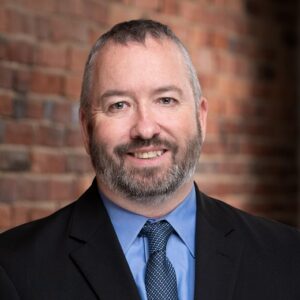Paycheck Protection Program and Health Enhancement Act (H.R. 266) – Public Health and Social Services Emergency Fund Focus

The Paycheck Protection Program and Health Care Enhancement Act (COVID-19 Phase 3.5) was signed into law on April 24, 2020 by President Donald Trump. This provides $484 billion in additional funding to replenish and supplement certain programs under the CARES Act, including the Paycheck Protection Program (PPP), small business disaster loans and grants, health care providers and COVID-19 testing.
The following is a summary of the appropriations for each segment:
- PPP: $321 billion (including $60 billion for small, midsize and community lenders)
- Disaster Loans Program: $50 billion
- Emergency Economic Injury Disaster Loan (EIDL) Grants: $10 billion
- Salaries and Expenses to Administer Programs Related to COVID-19: $2.1 billion
- U.S. Department of Health and Human Services (HHS) Grants under the Public Health and Social Services Emergency Fund: $100 billion (additional details provided below)
Division B – additional emergency appropriations for coronavirus response
Title I – Department of Health and Human Services
Public Health and Social Services Emergency Fund
Title I provides $100 billion in appropriations for the Public Health and Social Services Emergency Fund. This includes the following:
- $75 billion to reimburse health care providers for COVID-19 related expenses and lost revenue. The following criteria must be met in order to be eligible to receive these funds:
- These funds may not be used to reimburse expenses or losses that were reimbursed from other sources
- Recipients must submit reports and maintain documentation that the Secretary of HHS deems necessary (to be determined)
- Eligible providers providing testing, diagnoses or care for potential or confirmed cases of COVID-19 include the following:
- Public entities
- Medicare or Medicaid enrolled suppliers and providers
- For-profit and not-for-profit entities (as specified by the Secretary of HHS)
-
- Funds are available for the following uses:
- Construction of temporary structures
- Leasing of property
- Medical supplies and equipment (including personal protective equipment and testing supplies)
- Increased workforce and training
- Emergency operation centers
- Retrofitting facilities
- Surge capacity
- Funds are available for the following uses:
-
- To be eligible for payment, the eligible health care provider (with a valid tax identification number), will submit an application, including a statement justifying the need of the provider
- $25 billion for expenses related to testing. This includes research, development, validation, manufacture, purchase, administration and expanded capacity for COVID-19 tests. Portions of the $25 billion are to be allocated to the following (each amount below is a ‘not less than’):
- $11 billion: States, localities, territories and tribes
- $2 billion: States (Public Health Emergency Preparedness)
- $4.25 billion: States (based on number of COVID-19 cases)
- $750 million: Tribes, tribal organizations, urban Indian health organizations, or health service providers to tribes
- $11 billion: States, localities, territories and tribes
-
- $1 billion: The Centers for Disease Control and Prevention (CDC)
- $306 million: The National Institutes for Health (NIH) National Cancer Institute
- $500 million: NIH National Institute of Biomedical Imaging and Bioengineering
- $1 billion: NIH Office of the Director
- $1 billion: The Biomedical Advanced Research and Development Authority
- $22 million: The Food and Drug Administration (FDA)
- $600 million: Health Resources and Services Administration (HRSA) Primary Health Care for grants defined by section 330 of the Public Health Services Act, and for grants to federally qualified health centers (FQHCs)
- $225 million: Rural health clinics (RHCs) for COVID-19 testing and related expenses. These funds will be distributed using the procedures developed for the Provider Relief Fund, Public Law 116-136
- $1 billion: Testing for the uninsured (using the definitions applicable to these funds under Public Law 116-127)
Resources:
FOR MORE INFORMATION, PLEASE CONTACT THE FOLLOWING MEMBERS OF OUR HEALTHCARE ADVISORY GROUP:
Denis Houle: Senior Manager
Marc Levy: Senior Manager
Disclaimer of Liability: This publication is intended to provide general information to our clients and friends. It does not constitute accounting, tax, investment, or legal advice; nor is it intended to convey a thorough treatment of the subject matter.


